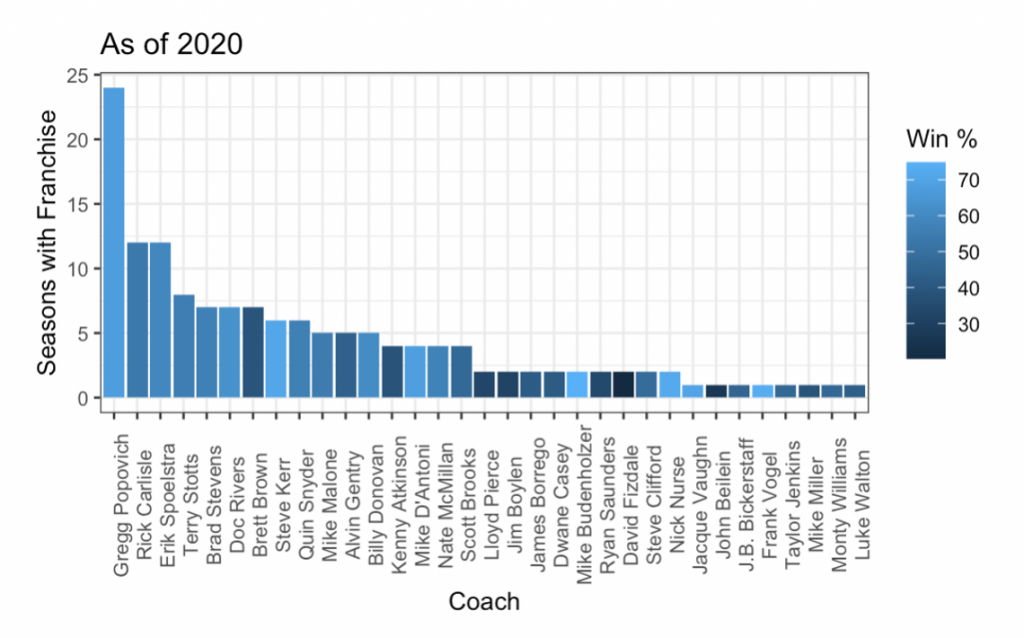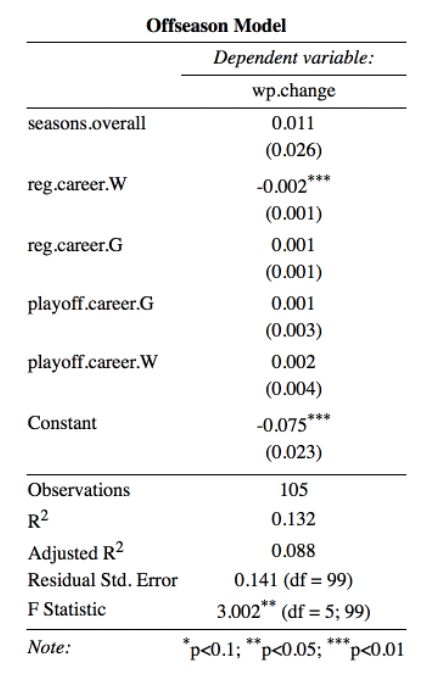By Jack Dolitsky – Syracuse University ’21
Abstract
There is a major discussion in sports, the NBA specifically, about how much of an impact do coaches have on team success relative to the players. Without much data being available on coaches, the best way to measure their impact is seeing what happens when a given team changes their coach in the offseason and seeing the effect it has on win percentage.
Introduction
It is always challenging to find the root cause as to why a team is performing below expectations. In the year 2020, there were not many coaches that were tenured for a long period of time, due to coaches often being the scapegoat in that situation. As you can see, there are only a handful of coaches who have been tenured for 5 or more years. The goal of this project is to not only see if changing a coach has an effect, but also what factors can help increase a team’s win percentage.

Methodology
In order to gather the data for this project, I used the website, Basketball-Reference.com. I found coach data from the seasons 2000-2020 that has information for various factors such as games coached and won in the playoffs, regular season, and with the given franchise. I created a variable to find the difference in win percentage for a new coach if the previous coach was fired in the offseason. I used the aforementioned variables to see if hiring a coach who has certain experience will influence whether the team improves or not.
Model
Looking at the data for only coaches that were changed in the offseason, the data was checked for normality. A linear model is a great model to use here because the data was normally distributed. These 5 variables were chosen because they represent the experience as well as the success of the new coach. The model can be seen in the below.

Conclusions
The only variable of significance is regular season games coached prior.
It is surprising to see a negative coefficient, which means that with more experience, we expect there to be a drop off in win percentage the following season after a coach change. A possible explanation is that if a coach, coached many games (leading to more wins) it could mean that he was replaced multiple times for certain factors that did not work out in the team’s favor. The fact that none of the other variables were statistically significant supports the notion that changing a coach in the offseason does not have an impact on team success. For future research, it would be useful to control for roster turnover, because that can be a major effect in season to season success.
